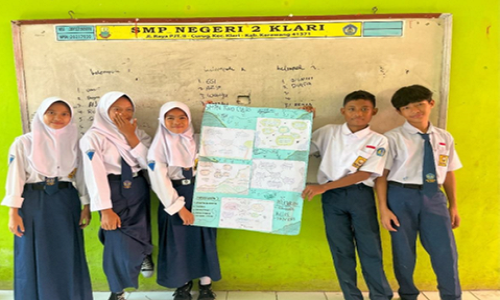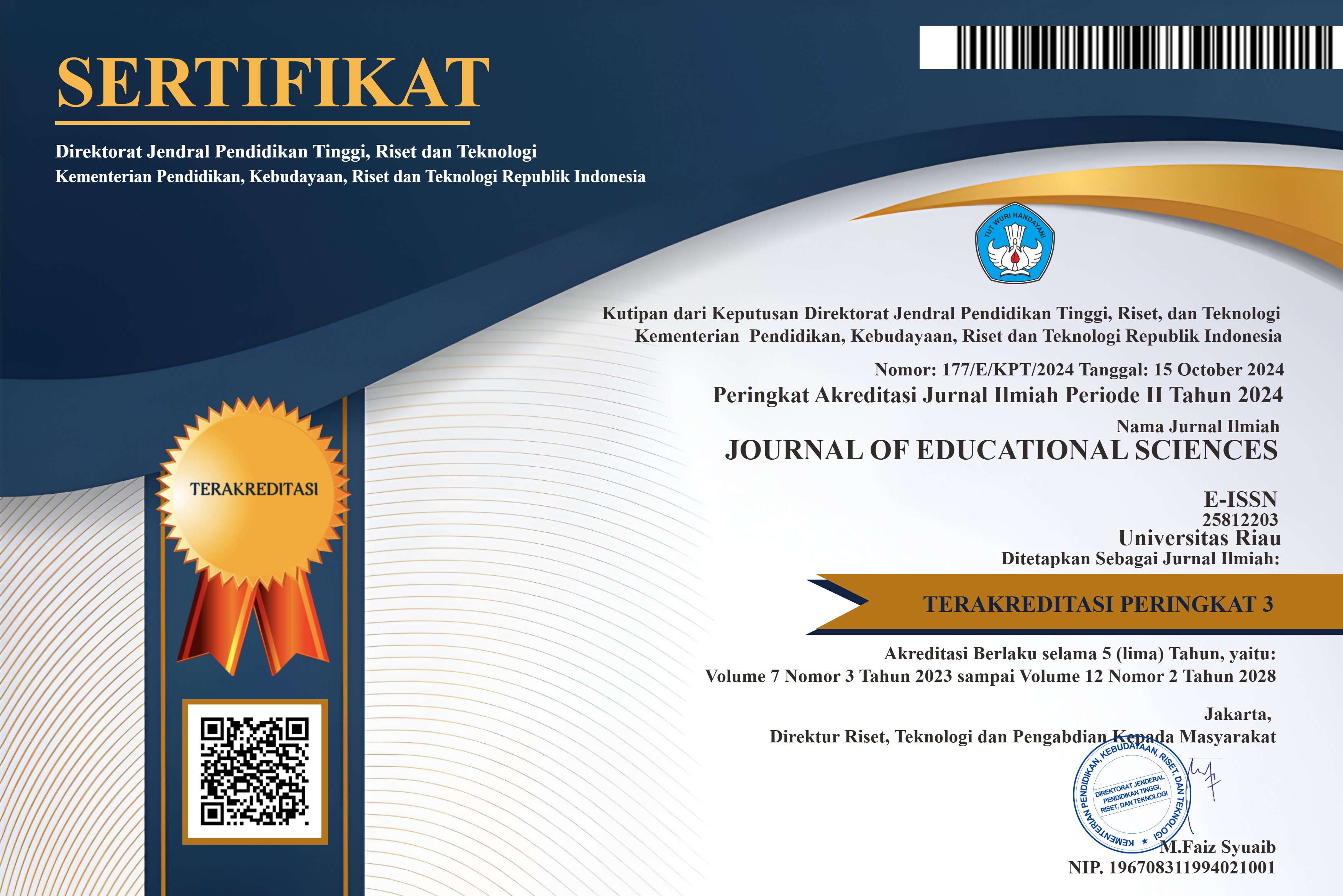Exploring EFL Junior High School Students In Learning Vocabulary Through Word Mapping Strategy : A Case Study
DOI:
https://doi.org/10.31258/jes.8.4.p.858-870Keywords:
Students Responses, Vocabulary Learning, Word-Mapping StrategyAbstract
Students' weak vocabulary mastery affects their ability to form sentences in oral and written communication, leading to low motivation and limited classroom interaction. This study examines students' responses to using word-mapping strategies in vocabulary learning. A qualitative case study design was employed, involving six seventh-grade students in the second semester of the 2023/2024 academic year. Data were collected through observations and interviews and analyzed using thematic analysis. The findings show that word mapping encourages active student engagement, reflected in their affective, behavioral, and cognitive responses. Most students displayed positive feelings, motivation, and interest in learning. Their behavior also supported these emotions, as motivated students were more active and responsive in class interactions. However, excessive student activity occasionally disrupted peers’ concentration. Despite this, class participation helped students better understand vocabulary and improve their language acquisition skills. This study concludes that positive affective responses and engaging word-mapping strategies enhance vocabulary learning and encourage student participation. However, effective classroom management is essential to minimize distractions and optimize learning quality.
Downloads

Downloads
Published
Issue
Section
License

This work is licensed under a Creative Commons Attribution-NonCommercial-ShareAlike 4.0 International License.












